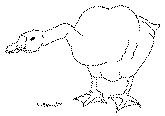I had an interesting conversation with Darling Daughter the other day. We are reading the book, Just Ella, by Margaret Peterson Haddix. This is a great young adult book (ages 12 and up). It is a variation on the Cinderella tale, starting where the original story left off. The author has removed the magic elements (they are rumors and gossip) and given Ella a feminist viewpoint.
My daughter and I read together almost every day. She has a learning disability that manifests itself in her reading. She IS intelligent, and that isn't just Mom talking. She faked her way through 6 years of school, using memory and deduction rather than reading and studying. It wasn't until 7th grade that I realized that she had a problem reading.
So we read together.
Now Just Ella is a clever book. When I first read it, I was critical of the language and attitudes of the main character, Ella. She seemed too modern for the story, not authentic. Of course I realized this was based on a story with a fairy godmother, mice who turn into horses, and love at first sight.
We were discussing the story, and my daughter surprised me by defending the original Cinderella. She was upset that the book portrayed Prince Charming as a dullard, and he and Cinderella weren't really in love. When I pointed out that the Prince only choose Cinderella because of her beauty, my daughter became defensive. She insisted they were truly in love, even though she admitted that the Prince didn't even bother to ask Cinderella her name. (Of course, I'm referring to the fairy tale/Disney versions not the multi-cultural/politically correct revision of the Rodgers and Hammerstein version). While she agreed with me, she still insisted they were in love.
This amazed me. The kid obviously saw the faults with Cinderella, but instead of accepting them, she decided to claim they didn't exist.
Finally, she relented with the statement: "But I LIKED Cinderella when I was little." That was the telling statement. She wanted Cinderella to be a "good" story because she liked it. I don't even remember her liking that story so much, so it could be a nostalgia thing.
I explained that it was just a story, and that if we didn't believe that pumpkins could turn into coaches, why would we believe the falling in love with beauty myth? There was nothing wrong with enjoying a silly story, as long as you realized it was just a story. That no fairy godmother was going to save you and that a woman is more than just her looks.
Is this when people first learn to blindly believe?
Is this when people start ignoring the facts that contradict what they want to be the truth?
Is this when it starts? When their childhood treasures are challenged?
This is definitely something that requires my attention.
3 weeks ago

3 comments:
Consider it from another angle: she might have felt threatened herself--if Cinderella is a "bad" story and she liked it, what does that say about her? That cognitive dissonance might be similar to the embarrasment one might feel when looking back on adolescent musical tastes. For example: Did I *really* own the Wham! album?* She may have wanted it to be a "good" story to avoid having to reconcile her former tastes with her current understanding. Or something like that.
* For the record, no. I did NOT own the Wham! album. My first girlfriend gave me a copy and I felt obligated to keep it until we broke up. But I tossed it immediately afterward and never considered it mine.
Sam,
You could be right.
And that is exactly what concerns me. It took me years to be honest with myself. And in those years, I made mistake after mistake.
And although it is easier to deny buying that Wham! album, it is liberating to say, "Yeah, I bought one of those, boy was I an asshole!"
Maybe we're also tricked into believing in things that we *want* to be true?
As someone who's still in the kick boxing ring with the beauty myth (and who used to listen to the Monkees, for god's sake), I really wonder what the value is of questioning the "truth" of fairy tales before having a handle on your own sense of self. Would I have made fewer mistakes in my adolescent love life?
If you want to read another cool book with your daughter -- that's a little more mature, but fantastic writing -- check out "Beauty" by Sheri Tepper.
Love your blog, by the way.
Post a Comment